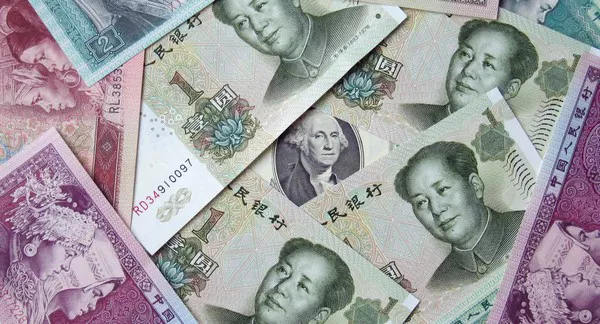In the realm of international finance, the ongoing debate about whether the Chinese yuan (renminbi) could replace the United States dollar as the world’s primary reserve currency has garnered significant attention. The international monetary system has been dominated by the U.S. dollar for decades, but recent developments in China’s economic prowess and global influence have sparked discussions about the potential for a shift in the balance of power. This article aims to explore the factors contributing to the speculation surrounding the yuan’s rise and its potential to replace the dollar.
The Ascendance of the Yuan:
China’s rapid economic growth over the past few decades has been nothing short of remarkable. As the world’s second-largest economy, China has become a key player in global trade and finance. The Chinese government’s efforts to internationalize the yuan have been evident through various initiatives, such as the inclusion of the yuan in the International Monetary Fund’s (IMF) Special Drawing Rights (SDR) basket in 2016. This move signaled the yuan’s growing recognition on the international stage.
Moreover, China has actively sought to increase the use of its currency in cross-border trade. Bilateral agreements with numerous countries enable transactions in yuan, reducing dependence on the U.S. dollar. The Belt and Road Initiative (BRI), a massive infrastructure project spanning multiple continents, has further facilitated the use of the yuan in international transactions.
Challenges and Obstacles:
While the yuan’s rise is undeniable, several challenges and obstacles stand in the way of it replacing the U.S. dollar as the global reserve currency. One major hurdle is the lack of a fully convertible currency. China maintains strict capital controls, limiting the free flow of its currency across borders. A truly global reserve currency requires a high degree of liquidity, flexibility, and stability, which the yuan currently lacks in comparison to the well-established U.S. dollar.
Additionally, concerns about China’s financial system transparency and governance persist. The opacity of Chinese economic data raises doubts among international investors and central banks about the yuan’s reliability as a store of value. To compete with the U.S. dollar, China must address these issues and foster confidence in the international community regarding the yuan’s stability.
Global Perception and Trust:
Trust is a crucial element in any currency’s global acceptance, especially as a reserve currency. The U.S. dollar has long been considered a safe-haven asset, and the stability of the U.S. financial system has bolstered confidence in the currency. To replace the dollar, the yuan must overcome perceptions of political interference, trade tensions, and geopolitical risks associated with China.
Furthermore, the role of the U.S. dollar in global financial markets is deeply entrenched. Many central banks, sovereign wealth funds, and investors around the world hold a significant portion of their reserves in U.S. dollars. Shifting away from the dollar would require a significant realignment of global financial markets and a compelling reason for countries to diversify their reserves.
Geopolitical Considerations:
The geopolitical landscape plays a crucial role in the potential transition from the dollar to the yuan. The United States has historically used the dollar’s dominance as an instrument of foreign policy and economic leverage. Any move away from the dollar would likely face resistance from the U.S., potentially leading to geopolitical tensions.
China’s assertive stance in international affairs and its growing influence in global institutions could influence other nations to consider the yuan as a viable alternative. However, it remains to be seen whether countries are willing to challenge the status quo and risk potential repercussions from the existing economic and political order.
See Also What Is The Value Of 1 Yuan?
The Digital Yuan and Technological Innovation:
China’s introduction of the digital yuan, a central bank digital currency (CBDC), represents a significant leap in technological innovation. The digital yuan has the potential to enhance cross-border transactions, reduce transaction costs, and increase the efficiency of financial transactions. If widely adopted, the digital yuan could play a pivotal role in reshaping the global monetary landscape.
Conclusion:
The question of whether the yuan can replace the U.S. dollar as the global reserve currency is complex and multifaceted. While China’s economic prowess and efforts to internationalize the yuan are undeniable, numerous challenges and obstacles must be addressed for a successful transition to occur. The global perception of the yuan’s stability, China’s commitment to financial transparency, and geopolitical considerations will play pivotal roles in determining the future of the yuan as a global reserve currency. As the international monetary system continues to evolve, the ascent of the yuan serves as a reminder of the dynamic nature of global finance and the ongoing shift in economic power.


